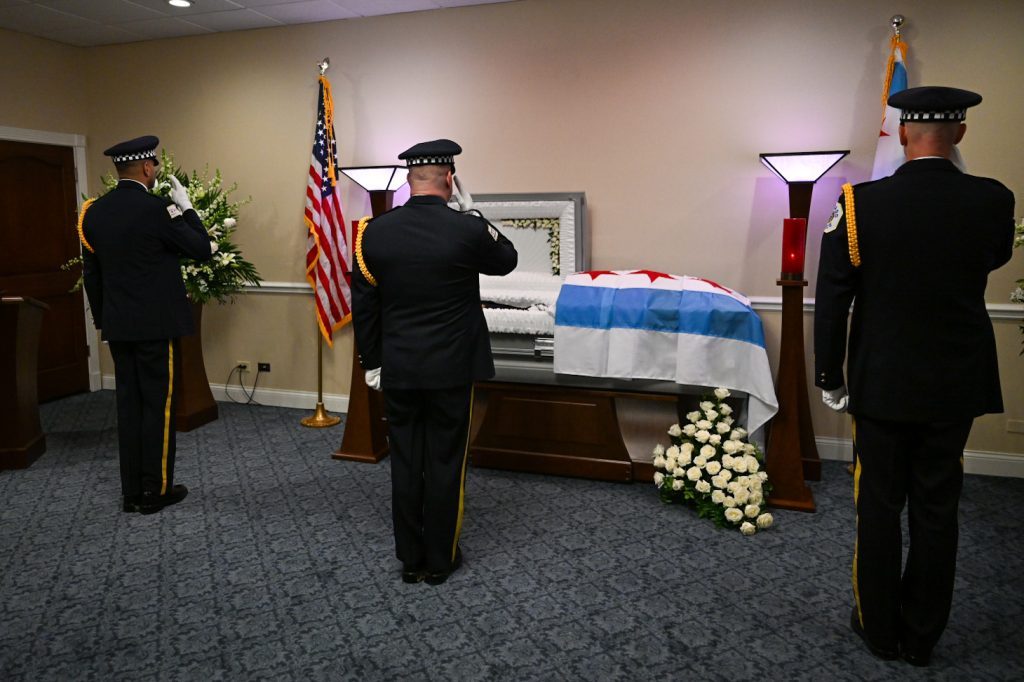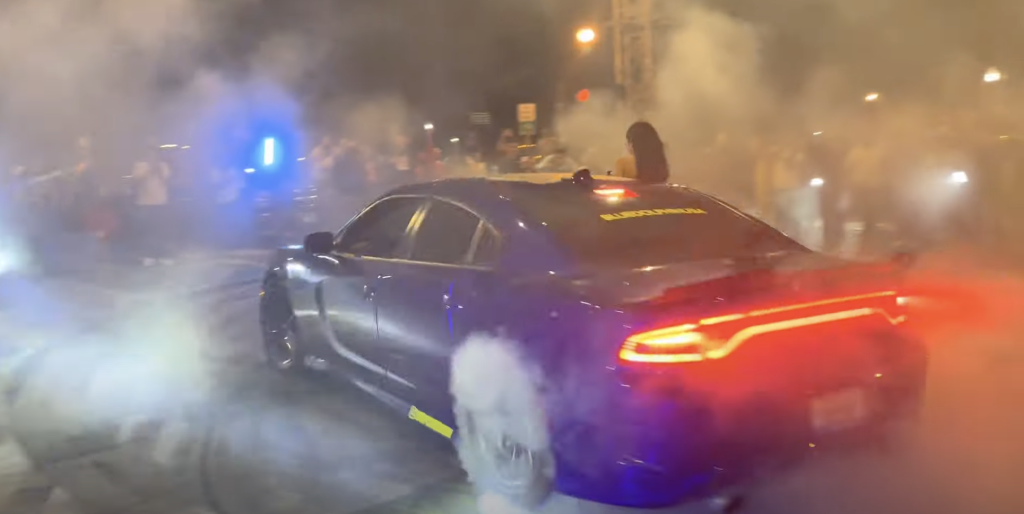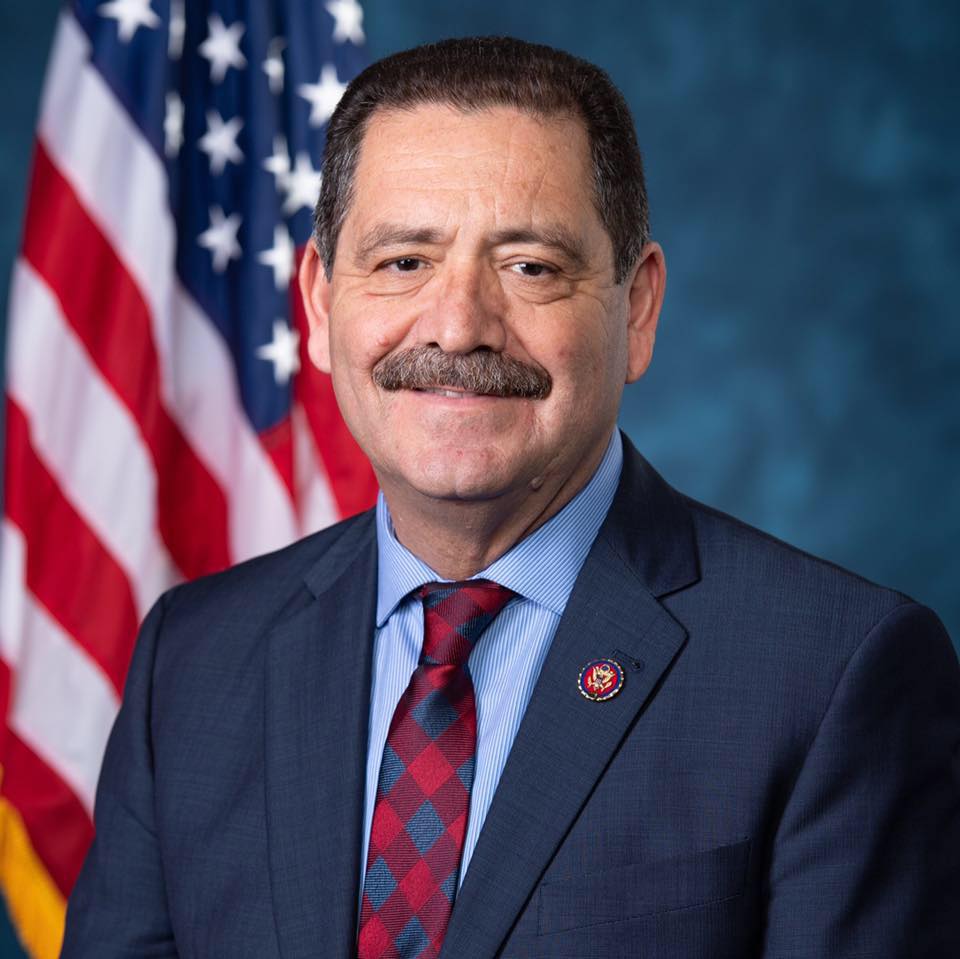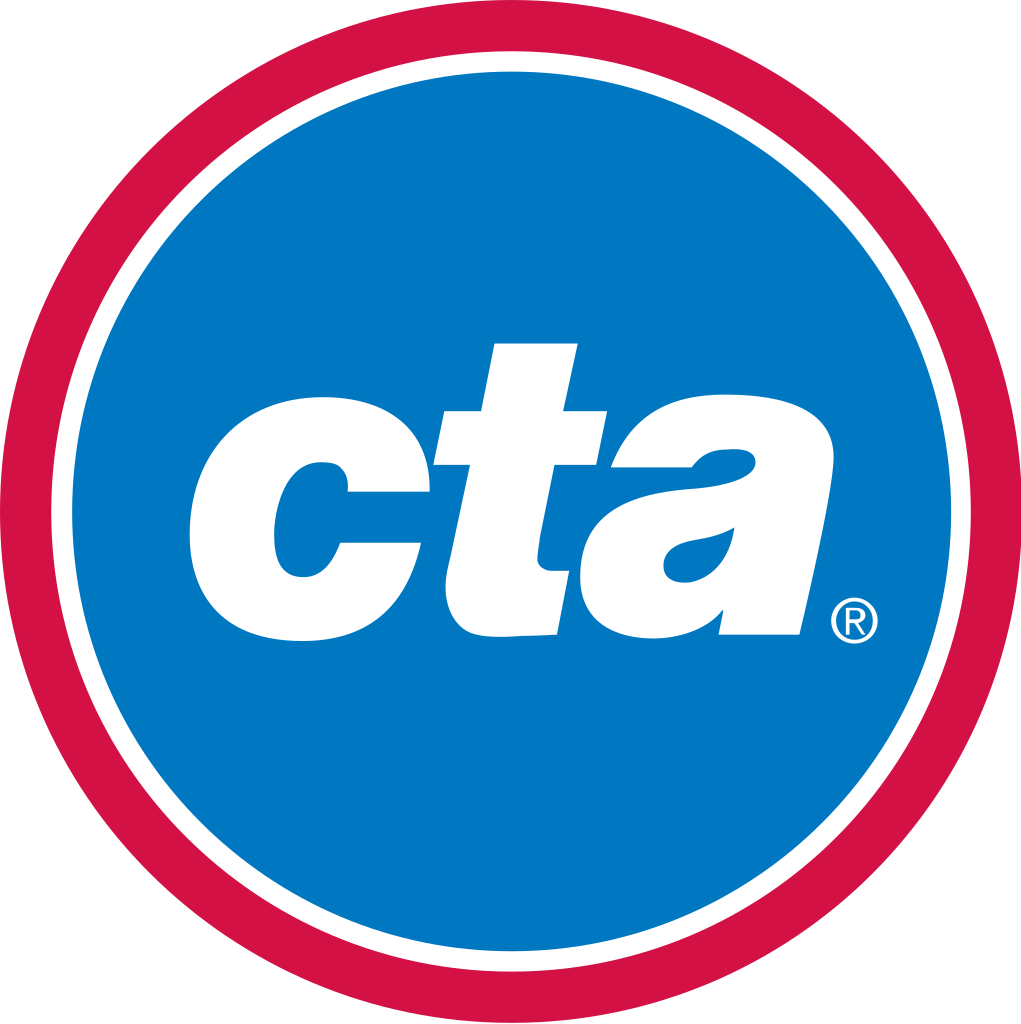
CAPITOL RECAP: Pritzker gives new guidance on masks
By Capitol News Illinois
SPRINGFIELD – Gov. JB Pritzker issued a new executive order Monday that allows fully vaccinated residents to not wear masks inside and outdoors.
The updated rules for mask wearing are nearly identical to the U.S. Centers for Disease Control and Prevention’s updated guidance, which was released Thursday.
The CDC guidance permits fully vaccinated people to not wear masks or physically distance in any non-health care setting, “except where required by federal, state, local, tribal, or territorial laws, rules, and regulations, including local business and workplace guidance.”
The CDC still recommends that fully vaccinated people wear masks in health care settings, as well as on planes, trains and other forms of public transportation.
The new executive order requires residents follow this recommendation regarding planes and public transportation. It also permits any entity to continue stricter masking requirements than are required by the state.
“(B)usinesses are encouraged to prioritize the health and safety of their workers and customers, and may continue to require face coverings and social distancing, even for those who are fully vaccinated,” the order states.
Pritzker said it will be up to private businesses to decide if they want to require patrons to provide proof of vaccinations.
“We are relying on people to do the right thing,” he said. “We are relying upon people to recognize that they don’t want to go infect other unvaccinated people and they don’t themselves want to get sick and so it’s important for people to protect themselves and I think there’s real motivation for people to go get that. We’re not going to stop people and, you know, start checking a vaccine passport as part of some state mandate.”
The mask mandate in Illinois took effect last May when Pritzker issued an executive order requiring anyone older than 2 years of age “to cover their nose and mouth with a face-covering when in a public place and unable to maintain a six-foot social distance.”
* * *
BUDGET UPDATE: Illinois budget officials said Thursday, May 13, that revenues are flowing into state coffers at a faster pace than previously estimated, meaning lawmakers will have more money to work with as they try to finalize a new budget for the fiscal year that begins July 1.
The Governor’s Office of Management and Budget officially raised its revenue estimate for the current fiscal year by more than $1.4 billion and by $842 million for the upcoming fiscal year.
Those figures are similar to the latest revised estimates from the General Assembly’s budget monitoring agency, the Commission on Government Forecasting and Accountability, which said last week that revenues for the current year would go up about $2 billion while next year’s revenues would be $792 million more than previously forecasted.
That came as good news to state lawmakers who are trying to finalize the next fiscal year’s budget before their scheduled adjournment day on May 31, but it still was not enough to completely close the looming deficit in next year’s budget, which House Majority Leader Greg Harris, D-Chicago, estimated at around $1.3 billion.
“The choices are really clear,” Harris said during a news conference Thursday. “We’re either going to have to find ways to cut to fill that hole, or we’re going to have to review the proposals that the governor made to close corporate tax loopholes on wealthy individuals and corporations. Some mix of those will be required.”
In February, Pritzker proposed filling the budget hole with about $1.5 billion in revenue enhancements that included closing what he called “corporate tax loopholes,” but which Republicans prefer to call “business incentives.”
So far, however, lawmakers have not appeared anxious to take up Pritzker’s tax proposals, at least until they have a clearer idea of how big of a budget hole needs to be filled.
“We remain very, very invested in trying to get a responsible budget to the governor’s desk,” said Rep. Michael Zalewski, D-Riverside, who chairs the House Revenue Committee.
Pritzker’s budget plan was drafted before Congress passed the American Rescue Plan, which will send about $8.1 billion in fiscal relief to the state. But the U.S. Treasury Department is still in the process of finalizing rules for how that money can be spent, and on Thursday, Harris cautioned against trying to use it to fill the state’s ongoing structural budget deficit.
* * *
FEDERAL FUND SPENDING: State officials said Wednesday, May 12, they would petition the U.S. Treasury to use federal stimulus funding to repay borrowing from the Federal Reserve that was undertaken amid the COVID-19 pandemic.
The state borrowed $3.2 billion from the Federal Reserve during the pandemic, plus another $400 million borrowed from the state treasurer’s office, and the short-term obligations are coming due.
Both Comptroller Susana Mendoza and Gov. JB Pritzker had said in earlier interviews that they wanted to use a portion of the roughly $8 billion in federal relief funds that Illinois expects to receive through the recently-passed American Rescue Plan to pay off the Federal Reserve loans. But new guidelines from the U.S. Treasury Department that were released on Tuesday specifically prohibit using those funds for “payment of interest or principal on outstanding debt instruments, including, for example, short-term revenue or tax anticipation notes, or other debt service costs.”
State Rep. Michael Zalewski, D-Riverside, who chairs the House Revenue Committee, said in an interview Wednesday that he does not believe the relief funds can be used to repay the Federal Reserve and that any repayment plan will have to be “part of a broader budget conversation.”
But Mendoza said in a statement Wednesday that she believes there may be room to negotiate with Treasury on the use of those funds.
“The Dept. of the Treasury said it welcomes feedback to the interim guidance on permitted uses of the stimulus funds,” she said in an email statement. “(The Governor’s Office of Management and Budget) and our office will be seeking to clarify with the Treasury that guidance against using these funds to pay debts unrelated to COVID-19 does not prevent their use for paying debts accrued for spending related to COVID expenses. Our office has made clear that stimulus funds will not be used to pay legacy costs such as pensions.”
During a separate news conference Wednesday, Pritzker insisted the state is committed to repaying the Federal Reserve loans one way or another, but said he believes the state should be allowed to use the relief funds for that purpose.
“Look, the federal government is sending us dollars and then telling us that we can’t then send those dollars back to the federal government to pay for the borrowing we took out last year. Clearly it doesn’t make a lot of sense and so we’ve talked to the Treasury Department about that,” he said.
* * *
MENDOZA WANTS CREDIT UPGRADE: Illinois Comptroller Susana Mendoza is asking the nation’s three major credit rating agencies to reconsider the state’s credit rating with an eye toward a possible upgrade.
In an April 28 letter to executives at Moody’s Investors Service, S&P Global Ratings and Fitch Ratings, Mendoza argued that Illinois has virtually eliminated its backlog of past-due bills while keeping current on its bond payments and pension obligations, all in the midst of a global pandemic.
“Please be assured that my office is doing everything possible in managing the current backlog of bills and addressing Illinois’ finances head on,” Mendoza wrote. “The Office of Comptroller urges your agencies to consider these positive factors and progress made paying down the backlog when evaluating Illinois’ credit worthiness.”
Illinois currently has the lowest investment-grade credit rating available from all three rating agencies, one notch above what is considered “junk bond” status.
Mendoza wrote that letter on the same day her office announced that the state’s bill backlog – actually, the sum total of all outstanding vouchers waiting to be paid – had been decreased to just $3.5 billion.
According to the letter, the oldest outstanding commercial voucher at that time was just two days old. The backlog was within the 30-day billing cycle that is common in the business world, Mendoza’s office said.
In fact, Mendoza said during an interview Tuesday that she believes the state now needs to come up with another word besides “backlog.”
“The key statistic here is that right now we are up to date with all of our commercial vouchers,” Mendoza said. “So there is no one waiting to get paid in my office. There could still potentially be some people that are waiting to get paid because their invoices might be at the agency level and they just haven’t sent them to us. But you’re talking about a minute group of people.”
* * *
TRAILER FEES: In 2019, the fee for licensing a small trailer in Illinois jumped from $18 to $118. Lawmakers are now looking for a solution to lower that fee without causing major drops in infrastructure funding.
The $100 fee increase was included in Gov. JB Pritzker’s 2019 Rebuild Illinois capital infrastructure plan, which funds road, bridge and building projects throughout the state. A House Revenue and Finance Committee on Thursday, May 13, discussed what steps could be taken to lower the fee amid a bipartisan push to do so.
House Bill 36, sponsored by Rep. Katie Stuart, D-Collinsville, would lower the small trailer fee back to $18. The committee discussed but did not vote on the matter Thursday.
She said a lot of residents use their trailers “maybe two or three times a year when they’re doing yard work cleanup or to move a boat out of storage,” and “they feel that the fee really is out of line with how much use people get out of their trailer.”
She said she expected the state to “continue to see the revenues from this fee decline as people decline to register their trailer.” Stuart noted that according to the secretary of state, Illinois had 150,000 fewer trailer license applicants in 2020 compared to the previous year.
House Bill 636, sponsored by Rep. Avery Bourne, R-Morrisonville, is a similar bill that has enough cosponsors to pass with a simple bipartisan majority, but it’s been blocked in committee.
But the Transportation for Illinois Coalition – a group of statewide and regional business, organized labor, industry, governmental and nonprofit organizations which lobbied for the capital bill’s passage in 2019 – warned that lowering the fees would take revenue away from state construction and infrastructure projects.
Kevin Burke, executive vice president of the Asphalt Pavement Association and co-chair for the coalition, testified against the bill. He said the COVID-19 pandemic has impacted the revenue sources that are used to fund Rebuild Illinois, and decreasing the fee would impose revenue challenges for construction projects included in the capital plan.
* * *
COVID-19 UPDATE: The bridge phase to full reopening that is set to begin Friday, May 14, allows theme parks to operate at 60 percent capacity, up from 25 percent under Phase 4 guidelines. Restaurants and bars can increase capacity from 25 percent to 30 percent, and outdoor capacity is allowed up to 50 percent for standing areas. As well, vaccinated people do not count against capacity limits.
The largest increase is to social events, which can allow 250 people indoors and 500 outdoors. Previously, those were capped at 50 people.
Also on Thursday, May 13, the U.S. Centers for Disease Control and Prevention released new guidance for masking which said fully vaccinated people can stop wearing masks in most indoor and outdoor locations, with exceptions for public transportation, planes, hospitals, doctors offices and prisons.
In response, Pritzker tweeted, “I firmly believe in following the science and will revise my executive orders in line with (CDC) guidelines lifting additional mitigations for vaccinated people. The scientists’ message is clear: if you are vaccinated, you can safely do much more.”
The governor also said at the Thursday news conference that the Chicago White Sox and Cubs will be adding sections in their ballparks for those who are fully vaccinated in order to maximize their allowable capacity. The capacity will increase to 60 percent at each park later in the month as well.
Pritzker’s office has said Phase 5, which is free of capacity limitations, could happen as early as June 11 if transmission numbers continue to decrease.
As of Thursday, the seven-day rolling average case positivity rate for COVID-19 was 2.7 percent, down from a recent high of 4.4 percent on April 12. Hospitalizations continued on a downward trend as well, with 1,765 people hospitalized for COVID-19 at the end of Wednesday night, a low since April 6.
* * *
VACCINE INCENTIVES: The state is opening vaccinations to Illinoisans age 12-15, and a major theme park operator is offering 50,000 free admission tickets in an effort to encourage vaccination in that age group.
That news came as the governor’s office confirmed the state will enter the “bridge” phase of expanded reopening Friday amid decreasing transmission rates, while first-time unemployment claims increased from the prior week and continued claims dropped.
As of Thursday, May 13, more than 4.6 million Illinoisans – or 36.5 percent of the state’s population – were fully vaccinated, with 10.1 million doses administered statewide. Almost 58 percent of the state’s age 16-and-over population had received at least one dose of the vaccine, according to the Illinois Department of Public Health.
But the vaccination pace has slowed, with about 76,082 vaccine doses administered on average daily over the previous seven days. That’s down from a peak of over 130,000 daily in mid-April.
Gov. JB Pritzker said at a news conference at the Gurnee Six Flags Great America location that incentives such as free tickets could nudge more Illinoisans toward taking the vaccine.
Mobile teams are a key component of the state’s effort to target vaccinations to hesitant or hard-to-reach communities. The Illinois Department of Public Health said in a news release Wednesday it is also enrolling pediatricians into the state immunization registry to allow them to administer COVID-19 vaccines. As well, schools may partner with the local health department or pharmacy to set up vaccination clinics for students.
Rep. Mike Zalewski, a Democrat from Riverside, is sponsoring a measure he calls the “shot and a beer act” to incentivize those age 21 and older to be vaccinated. That would allow Illinois bars to offer one free alcoholic drink to a customer who can prove they are vaccinated.
The U.S. Food and Drug Administration recently expanded the emergency use authorization for the vaccine manufactured by Pfizer-BioNtech, and the state announced Thursday vaccination sites would be ready to vaccinate 12-15 year-olds this week.
* * *
UNEMPLOYMENT UPDATE: Unemployment claims remained high as of Thursday, May 13, with 18,355 initial claims filed the week ending May 8, a 21 percent increase from the previous week. There were 216,176 unemployment weeks claimed for the week ending May 8, a decrease of 5 percent from the week prior.
In a separate news conference Wednesday, Pritzker said he did not plan to opt the state out of a federal plan that allows people on unemployment to receive $300 extra per week in unemployment compensation.
“Our job here is to make sure that we’re creating jobs and helping people to rebuild the lives that they had before, the pandemic,” the governor said when asked about the extra $3000 payments. “And so we’re not going to pull the rug out from under people. What we are going to do is make sure that we’re creating promoting as many jobs as possible and attracting people to those jobs.”
* * *
FIREARM RESTRAINING ORDER: The Illinois House on Wednesday, May 12, passed a bill that would expand the scope of the Firearms Restraining Order Act and spread awareness of the law in law enforcement and the general public.
Skokie Democratic Rep. Denyse Stoneback, a freshman legislator, introduced House Bill 1092 last month in response to high profile mass shootings that took place in the U.S. earlier this year, including a shooting at an Indiana FedEx facility.
Under the Illinois’ Firearm Restraining Order Act, family members of an individual and law enforcement can petition the courts to remove that individual’s guns and prevent them from purchasing or borrowing guns if it is determined that the individual would pose a threat to themselves or others if they were in possession of a firearm.
Stoneback’s legislation would expand the list of family members who can file such a petition to include former spouses and people who have or allegedly have a child with the subject of the restraining order.
If courts grant the order, under Stoneback’s bill, the individual would also be banned from purchasing or owning ammunition and weapon parts that could be assembled into a usable gun.
While the current law requires the restraining order be filed in the county where the subject of the order lives, HB 1092 would also add the option of filing the order in any county where an incident occurs involving the subject of the order where they posed a danger by owning a gun.
As part of the legislation, the Illinois Department of Public Health would be required to promote awareness of firearm restraining orders, especially in relation to instances of domestic violence and mental health crises.
It also creates a commission within the State Police overseeing the implementation of the 2019 law, and mandates new annual training standards for officers on how to use and file firearms restraining orders.
It passed 69-43 and now heads to the Senate for approval.
* * *
MANDATORY LIFE APPEAL: A man who was found guilty for acting as the lookout in a double homicide nearly three decades ago is asking the Illinois Supreme Court to find his mandatory life sentence without parole unconstitutional.
A lawyer for Antonio House argued before Supreme Court Tuesday, May 11, that his life sentence for a crime committed when he was 19 years old violates the so-called proportionate penalties clause of the Illinois Constitution.
This clause in the constitution states: “All penalties shall be determined both according to the seriousness of the offense and with the objective of restoring the offender to useful citizenship.”
Lauren Bauser, an assistant appellate defender who represents House, said the court should allow House to be resentenced because “the record in this case demonstrates that Antonio’s mandatory life sentence without the possibility of parole for a crime he committed as a teenager, as a teenage lookout, who wasn’t present at the time of the killing, shocks the conscience.”
House was a member of the Unknown Vice Lords street gang at the time of the September 1993 murders of Stanton Burch and Michael Purham in Chicago.
The killings were related to a gang conflict after Burch and Purham, who were members of a rival gang, took over a street corner for drug sales that previously was Unknown Vice Lords’ territory.
House was arrested in October 1993 for participating in the armed kidnapping of Burch and Purham, and acting as lookout when the men were fatally shot.
A jury found House guilty of two counts of first degree murder and two counts of aggravated kidnapping. He was sentenced to two consecutive life sentences, followed by 60 years in prison.
Under Illinois law at the time, a conviction for murdering more than one person carried a mandatory life sentence without parole.
Since his conviction and sentencing, House has appealed his case, focusing on two primary claims.
First, he makes an innocence claim based on the fact that a key witness who testified she saw House kidnap Burch and Putnam has now recanted that testimony. This recanted testimony entitles him to a hearing on his claim of innocence, he argues.
Second, House argues that recent U.S. Supreme Court cases demonstrate a consensus against the imposition of mandatory life sentences for juveniles. In addition, he argues that scientific advances in brain research indicate that evolving societal standards relating to juvenile sentences should also apply equally to older teenagers like 19-year-old House.
* * *
MATERNAL CARE EXPANSION: The Illinois Senate passed legislation Wednesday, May 12, expanding maternal and postpartum care in Illinois,.
Senate Bill 967, sponsored by Elgin Democratic Sen. Cristina Castro, passed the Senate floor Wednesday on a 58-0 vote. It will head to the House for further consideration.
The legislation requires the Illinois Department of Human Services to update its maternal health programs for pregnant and postpartum individuals determined to be “high-risk” under new criteria, with these services being operated by registered nurses, licensed social workers and other appropriate staff approved by IDHS. Illinois Department of Public Health policies would be updated as well with new guidance and requirements for hospitals that deliver babies.
All hospitals that qualify under the statute must have written policies following IDPH guidelines on maternal and postpartum care, as well as the leading causes of maternal mortality.
SB 967 would also mandate that IDHS, IDPH, and the Illinois Department of Healthcare and Family Services revise rules related to follow-ups for high-risk infants by June 2024 in order to improve outcomes and reduce the significant racial disparities in infant and maternal death rates.
Under the bill, private insurance plans would be required to provide postpartum coverage up to one year following the end of a pregnancy for complications relating to that pregnancy. This would include access to treatment for “mental, emotional, nervous or substance use disorder or condition(s)”.
* * *
HAIR DISCRIMINATION: An amendment to Senate Bill 817, sponsored by Chicago Democratic Sen. Mike Simmons, would prohibit all Illinois schools from making dress code requirements that prohibit hairstyles historically associated with race, ethnicity or hair texture. The legislation specifically cites braids, locks and twists as hairstyles protected by the statute.
The bill passed the Senate on a 40-13 vote Wednesday, May 13.
“This is a really straightforward proposition,” Simmons said during his May 4 testimony before the committee. “As somebody who has been targeted and discriminated myself by schools, and has been resilient and I don’t want the next generation to have to go through this.”
The committee ultimately voted to table Simmons’ bill during its previous hearing due to concerns over the enforcement mechanisms. Many Democrats expressed opposition to a provision that would have withheld the allocation of dollars from the state’s evidence-based funding model for education from school districts that were non-compliant with the bill.
While Simmons testified during that hearing that he wanted the legislation to have “teeth” behind its enforcement, the version he introduced Tuesday removed that provision from the bill.
* * *
PRESCRIPTION DRUG REPOSITORY: House Bill 119 would establish a prescription drug repository program, allowing certain unused prescription drugs to be returned to pharmacies and reused for eligible populations. The bill would allow individuals to return unexpired prescription and over-the-counter medication which remains in unopened, tamper-evident packaging.
It passed the House and will head to the full Senate for consideration after passing committee.
Unused medications could be returned by individuals at participating pharmacies, and prescription donors would be required to provide information regarding the strength and quantity of each donation.
“Instead of medication ending up in landfills, this would create an opportunity for there to be relief for Illinoisans who are struggling to afford their medication,” chief Senate sponsor Karina Villa, D-West Chicago, said during a Tuesday committee hearing.
Villa said the program allows for collection of “safe, unused, unexpired” medications which can then be made available “at a minimal cost to patients.”
George Wang, co-founder of the nonprofit organization SIRUM, or Supporting Initiatives to Redistribute Unused Medicine, told the committee that through this program, unused prescriptions could be sent to other charities or community health organizations to assist vulnerable low-income patients and those in need of low-cost prescriptions.
“Typically, what happens in these programs is that the medicine would be donated to a charitable pharmacy and perhaps a free clinic, and then that entity would dispense the medicine,” Wang said.
Villa said the bill would make Illinois one of more than 20 states to provide a prescription drug repository program.
* * *
FEMININE HYGIENE AT HOMELESS SHELTERS: The Senate Health Committee on Tuesday, May 11, passed House Bill 310, which would require homeless shelters to provide feminine hygiene products. It heads to the full Senate for a vote after already passing in the House.
The bill would require that products such as sanitary napkins, tampons and panty liners be made available for free at all shelters that provide temporary housing assistance to women and youth.
It applies to public and private shelters, but the shelter’s obligation to provide the products is “subject to the availability of funds in the homeless shelter’s general budget.”
Sen. Laura Fine, D-Glenview, said the bill would also encourage individuals to donate feminine hygiene products, which are often in short supply at homeless and temporary support shelters.
“This puts something very important on people’s radar screens, because we think of donating food or clothing, but this is also going to open people’s minds to donating these feminine products,” Fine said.
The bill passed committee by an 11-2 vote.
* * *
TOURISM CAMPAIGN: Gov. JB Pritzker announced a new $6 million tourism advertising campaign Wednesday, May 12, aimed at attracting visitors to the state and sparking economic activity following the COVID-19 pandemic.
The multimedia campaign, featured around the theme “Time for Me to Drive,” showcases various destinations in all parts of the state and aims to reflect Illinois as a top destination for road trips.
According to a news release, the campaign reflects increasing consumer trends to take shorter trips by car to destinations closer to home following the pandemic. The campaign is the first to be released by the state since the outset of the COVID-19 pandemic last year.
Pritzker said the new campaign introduces tourists to “an Illinois they may not have seen before,” including destinations such as state parks, the Shawnee National Forest and the Garden of the Gods.
The campaign also promotes the cities of Chicago, Springfield and Galena as potential road trip destinations.
Sylvia Garcia, acting director of the state’s Department of Commerce and Economic Opportunity, said prior to the COVID-19 pandemic, Illinois saw over 120 million visitors annually who collectively spent more than $40 billion in the state.
Garcia said those numbers were “cut in half” as a result of the pandemic last year.
The advertising campaign includes television, radio, digital and print spots. Garcia said the campaign would primarily be shown in the seven states surrounding Illinois and 18 total markets.
Jacobson said 20,000 hotel workers are still out of work following pandemic-related closures and shutdowns, and that promoting tourism would be key to increasing tax revenue in the state.
* * *
ENERGY HEARING: The Illinois House Energy and Environment Committee on Tuesday, May 11, discussed the latest proposal to enter the energy overhaul discussion – Gov. JB Pritzker’s Consumers and Climate First Act.
House Bill 4074, which is Pritzker’s 900-page proposal, was released at the end of April with the goal of transitioning Illinois to 100 percent carbon-free energy – including nuclear power – by 2050.
Deputy Gov. Christian Mitchell said many of the ideas in Pritzker’s proposal align with the goals of other energy bills, especially the Clean Energy Jobs Act, which is sponsored by Rep. Ann Williams, D-Chicago, and initially introduced in 2019.
Some of the similar goals include CEJA’s creation of clean workforce hubs and energy investments in wind turbines and solar power, as well as electrifying the transportation sector.
The governor’s bill also builds on labor provisions found in amendments made to House Bill 1472, known as the Climate Union Jobs Act, such as labor standards for utility-scale projects and other project labor agreements like prevailing wage.
It also builds off the Path to 100 Act, contained in House Bill 2640. That bill would increase the cap on energy bills from about 2 to 4 percent to provide funding for renewable projects, avoiding what its advocates call the “solar cliff.” The governor’s bill sets the rate cap at 3.75 percent.
“None of the pieces are there in total but we believe it’s a strong compromise proposal,” Mitchell said.
Pritzker’s bill aims to phase out coal by 2030 and natural gas by 2045 through declining caps on carbon emissions, and increases the state’s commitment to renewable energy, placing Illinois on a path to at least 40 percent of energy coming from renewable energy resources by 2030.
It also sets the goal of putting 1 million electric vehicles on the road by 2030.
The governor’s bill also contains utility accountability and ethics provision, including an end to automatic formulaic rate increases for utility companies.
The bill also looks at possible restitution for ratepayers, expanding ethics filings for legislators and members of the executive branch who have family members on the payroll of utilities, and subjecting the Citizens Utility Board to the freedom of information act, among other ethics measures.
Mitchell also said the bill recognizes that natural gas remains an important bridge fuel as the state transitions to carbon-free resources and introduces an $8 per ton carbon price, similar to the Regional Greenhouse Gas Initiative, which is in place in more than 10 states.
* * *
SPECIAL EDUCATION BILLS: A Senate committee passed two bills related to special education Tuesday, May 11, among several others.
Springfield Democrat Sen. Doris Turner’s House Bill 41 would add a new responsibility for the state when placing children in special education facilities. Under the proposal, before a child could be placed in an out-of-state residential facility, the entity behind that decision – whether it is a school district, Illinois agency or court – must refer the child’s guardians to a comparable in-state facility to consider.
The provision would also require the entity behind an out-of-state placement of a special education student to review that placement annually, and each year refer an in-state facility to the child’s guardians.
House Bill 40, sponsored by Sen. Bill Cunningham, D-Chicago, would change how students using special education services age out of the program. Under current Illinois law, special needs students lose their eligibility and are removed from school the day before they turn 22.
Cunningham’s bill allows students in special education to be eligible for services throughout the entire school year in which they turn 22, allowing them to graduate at the same time as their peer group.
Both bills were advanced to the Senate floor unanimously, having already passed in the Illinois House.
Two bills that were subject to lengthy testimony and debate during the Senate Education Committee’s previous hearing on May 4 also advanced to the Senate floor Tuesday.
Capitol News Illinois is a nonprofit, nonpartisan news service covering state government and distributed to more than 400 newspapers statewide. It is funded primarily by the Illinois Press Foundation and the Robert R. McCormick Foundation.
Local News

Billions of cicadas get ready to raise a racket
Spread the loveBy Kelly White If you haven’t heard the buzz yet, you will soon. With 2024 marking a big year for periodical cicadas in Illinois, billions of the red-eyed buggers will soon be making an appearance. Periodical cicada broods XIII and XIX will be emerging throughout much of the state at the same time.…

‘A man of honor, a beacon of kindness’
Spread the love. Chicago weeps for Officer Luis Huesca . By Tim Hadac People across the Southwest Side shed tears earlier this week, as throngs of police officers and other filled the St. Rita of Cascia Shrine Chapel at 77th and Western for a funeral Mass for CPD Officer Luis M. Huesca. Officer Huesca was…

Archer Manor Little League starts its 2024 season
Spread the love. Sunny skies and mild temperatures greeted the boys and girls, moms and dads, umpires and coaches, and everyone else participating in Archer Manor Little League’s Opening Day parade and ceremonies at Archer Park. Since 1952, AMLL has provided athletic opportunities for thousands of boys and girls in Archer Heights, West Elsdon, Central…

Dread over car drifters on streets
Spread the love. Reckless drivers take over SW Side intersections . By Tim Hadac At the April meeting of the Garfield Ridge Neighborhood Watch, a police officer admitted that the drag racing/drifting phenomenon seen and heard in the Midway area in recent years “probably will increase, but we hope not.” The admission was triggered by…

Don’t raise pilots’ retirement age, García says
Spread the love. From staff reports U.S. Rep. Jesús “Chuy” García (D-4th), senior member of the Transportation and Infrastructure Committee, recently led a letter joined by 121 Members of Congress urging House Democratic leadership to reject any changes to the pilot retirement age in a final version of the Federal Aviation Administration (FAA) reauthorization bill.…

CTA launches ‘chat’ feature on website
Spread the love. From staff reports Artificial Intelligence has made another step forward at the Chicago Transit Authority. CTA officials recently launched the “Chat with CTA” chatbot, a new virtual automated service featured on transitchicago.com. The communication tool allows riders to report issues, provide feedback and receive answers in real-time. Additionally, it provides the CTA with customer…

New effort to aid kids with disabilities
Spread the love. From staff reports A new grant program aimed at providing financial assistance to families of children with disabilities was launched recently by Mayor Brandon Johnson, in partnership with the Mayor’s Office for People with Disabilities and Ada S. McKinley Community Services. Children with disabilities is a population disproportionately affected by the pandemic,…

Dart warns of Sheriff’s Office imposters
Spread the love. From staff reports Cook County Sheriff Thomas J. Dart recently alerted the public of an uptick in telephone and email phishing scams in which scammers identify themselves as a Sheriff’s Office employee in an attempt to defraud victims. Scammers are using the actual names and respective titles of Sheriff’s Office employees to…

It’s ‘Batter up!’ time in West Lawn
Spread the love. Peggy Zabicki Your correspondent in West Lawn 3633 W. 60th Place • (773) 504-9327 . It must be May because baseball season is here. I recently reported on the West Lawn Little League, whose 2024 season is now underway. Another West Lawn youth athletic association is Midway Baseball Softball Association. Their teams…
Neighbors

Billions of cicadas get ready to raise a racket
Spread the loveBy Kelly White If you haven’t heard the buzz yet, you will soon. With 2024 marking a big year for periodical cicadas in Illinois, billions of the red-eyed buggers will soon be making an appearance. Periodical cicada broods XIII and XIX will be emerging throughout much of the state at the same time.…

‘A man of honor, a beacon of kindness’
Spread the love. Chicago weeps for Officer Luis Huesca . By Tim Hadac People across the Southwest Side shed tears earlier this week, as throngs of police officers and other filled the St. Rita of Cascia Shrine Chapel at 77th and Western for a funeral Mass for CPD Officer Luis M. Huesca. Officer Huesca was…

Archer Manor Little League starts its 2024 season
Spread the love. Sunny skies and mild temperatures greeted the boys and girls, moms and dads, umpires and coaches, and everyone else participating in Archer Manor Little League’s Opening Day parade and ceremonies at Archer Park. Since 1952, AMLL has provided athletic opportunities for thousands of boys and girls in Archer Heights, West Elsdon, Central…

Dread over car drifters on streets
Spread the love. Reckless drivers take over SW Side intersections . By Tim Hadac At the April meeting of the Garfield Ridge Neighborhood Watch, a police officer admitted that the drag racing/drifting phenomenon seen and heard in the Midway area in recent years “probably will increase, but we hope not.” The admission was triggered by…

Don’t raise pilots’ retirement age, García says
Spread the love. From staff reports U.S. Rep. Jesús “Chuy” García (D-4th), senior member of the Transportation and Infrastructure Committee, recently led a letter joined by 121 Members of Congress urging House Democratic leadership to reject any changes to the pilot retirement age in a final version of the Federal Aviation Administration (FAA) reauthorization bill.…

CTA launches ‘chat’ feature on website
Spread the love. From staff reports Artificial Intelligence has made another step forward at the Chicago Transit Authority. CTA officials recently launched the “Chat with CTA” chatbot, a new virtual automated service featured on transitchicago.com. The communication tool allows riders to report issues, provide feedback and receive answers in real-time. Additionally, it provides the CTA with customer…

New effort to aid kids with disabilities
Spread the love. From staff reports A new grant program aimed at providing financial assistance to families of children with disabilities was launched recently by Mayor Brandon Johnson, in partnership with the Mayor’s Office for People with Disabilities and Ada S. McKinley Community Services. Children with disabilities is a population disproportionately affected by the pandemic,…

Dart warns of Sheriff’s Office imposters
Spread the love. From staff reports Cook County Sheriff Thomas J. Dart recently alerted the public of an uptick in telephone and email phishing scams in which scammers identify themselves as a Sheriff’s Office employee in an attempt to defraud victims. Scammers are using the actual names and respective titles of Sheriff’s Office employees to…

It’s ‘Batter up!’ time in West Lawn
Spread the love. Peggy Zabicki Your correspondent in West Lawn 3633 W. 60th Place • (773) 504-9327 . It must be May because baseball season is here. I recently reported on the West Lawn Little League, whose 2024 season is now underway. Another West Lawn youth athletic association is Midway Baseball Softball Association. Their teams…






